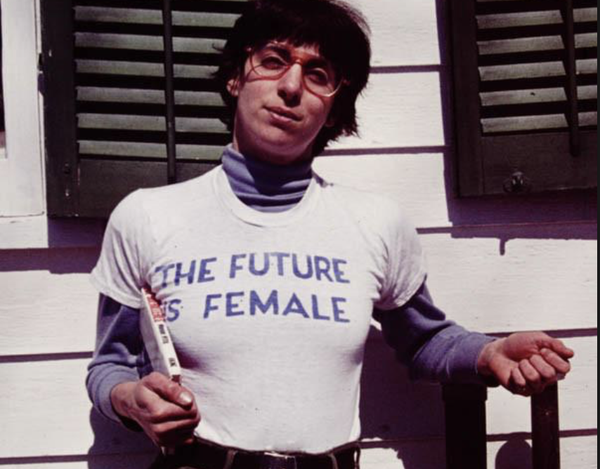Today, I had a life-changing experience.
Today, I met a man named Basim Razzo. He traveled all the way from Iraq to come to Penn State and speak to a group of very lucky students. Basim’s goal is not just to communicate with the Penn State community, but to share his story with as many people as possible– to anyone who is willing to open their minds and hearts to his story. He was kind enough to let me reflect on his powerful words.
Basim is a survivor of the destruction of war. The war on ISIS in Iraq tore through his hometown, Mosul. He described with sorrow in his voice to 700 students, myself among them, that living in a war zone is “complete hell.”
He worried every time his children left the house. He tried to keep his family inside the walls of their home as much as possible. He did this out of fear. The fear of a car bomb being set off down the street or a missile strike on a daily walk to the office. The fear of soldiers shoving their guns in the faces of civilians or the fear of receiving lashes for not being dressed “properly.” The fear of not knowing if your loved ones will return when they walk out the front door. The fear of civilian casualties that “simply come along with war”.
No one can begin to imagine the terror of a war zone until living in one.
In September of 2015, Basim’s nightmares became a reality. His home, as well as his brother’s directly next door, were both bombed in the middle of the night. Basim lost his wife, his daughter, his nephew, and his brother in the attack. He woke up to the silence of the aftermath and the pain of numerous injuries. There was no roof over his head, and his home was in shambles. Basim lost everything– and for what? He simply wanted to know what cause was so great, that such destruction was necessary.
No words that I write here could possibly capture such immense loss. No condolences could ever make this loss okay. But Basim’s loss was not the point of his story. Basim did not come to us looking for compassion. He came to us to teach how far empathy can take you in life. Basim came to inspire.
And that he did.
While you read, rather than focusing on the sorrow of loss, focus on the hope that Basim has inspired. Basim is a kind soul who has risen above pain and anger, in order to preach peace and empathy.
Fifteen months after the attack, and after a long and tiring investigation, Basim learned that he and his brother’s homes had been targeted by an American coalition, performing an airstrike on what they believed to be an ISIS Facility. This was false intelligence. Americans had made a grave mistake.
The Razzos were certainly not ISIS sympathizers – they were innocent Iraqis. Faulty American intelligence had cost him his entire life. As an American, I would believe that Basim should hate us all. Should want revenge. But Basim does not hold a spot for hatred in his heart– he simply prays that this violence will stop.
Rather than hate and blame, Basim is confused, he is upset, he asks why, but never does he hate. He described what he felt as an understanding of what had happened.
Basim somehow understood that although this was a terrible occurrence, it was a mistake. Through this, Basim invited us, the listeners, to experience empathy. To preach empathy instead of hatred in the wake of such destruction is a heroic thing. This empathy is what drove Basim to try to explain to us, with a humbling humility, the reality of war. Basim wants to make a difference by spreading this teaching of empathy, so that this world, even in the wake of war, will not be one full of hatred. He wants to spread awareness of the horrors of the world because so many of us are sheltered.
As young Americans, we are brainwashed to believe everything we see on the corporate news. We let the media incite fear inside of us. This fear prompts us to be afraid of Middle Eastern society.
Basim described being an Iraqi citizen as being labeled as “bad” by those of us who simply do not understand the culture. He took on the “bad apple” metaphor. Just because there is one rotten apple in a dozen, does not mean that every single apple is rotten. While the truth is that there are good people and there are bad people, Basim reminded us of something that we often forget through cultural differences: We are all human— everyone deserves equal respect, not the shame of a stereotype.
Why, just because I am an American, should I receive more respect than an Iraqi? Why should I be spared from discrimination, pain, sorrow, death, and war? Why do I deserve this privilege? I do not, and neither does any single person reading this article. We fall into the “bad apple” category by allowing this to go on out of a lack of awareness of the innocent lives being taken by war and discrimination.
It is time to face reality here. I cannot turn my back after meeting such an incredible, hopeful, and inspiring human. I recognize that we must learn to become more empathetic, less hateful, and more aware if we want to see a change.
Today, I watched a student from Turkey weep in the arms of a man from Iraq over the shared pain of loss, a loss that I have never known. I was just an observer– I did not understand this pain, yet I was in tears. Basim told this student, “Do not cry. Be at peace with yourself.”
Today, this peace is what I want to get across. If we can find a way to be at peace, to be better people, just as Basim did in the wake of so much pain and loss, we can inspire hope for a better world.
Travel. Experience. Converse. Learn. This is what Basim told us can cure the unawareness that we face. We must let go of our fears and step out of our comfort zones in order to understand. To understand is to gain empathy - an empathy that can change our world.
It seems an impossible task. But how can something like empathy be impossible when a man who has faced so much loss feels no hatred, but rather forgiveness?
We should want to be better, and we should want to be less blind. Basim Razzo said that he believes in fate and destiny. I am a believer as well, and I do not believe that war and loss is the fate of our world.
So, what do you believe? What will you do, what will we do to mend the broken path that our world is spiraling down?



















